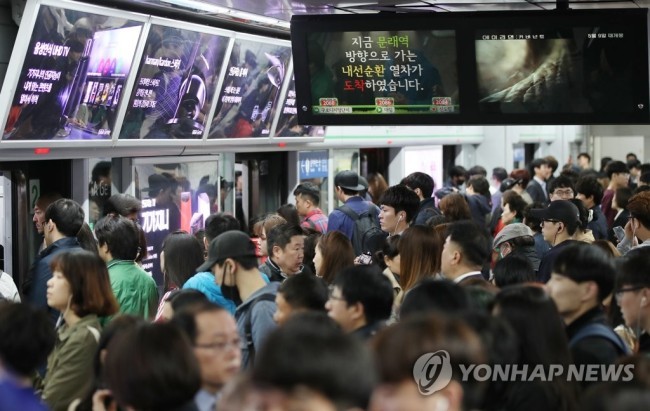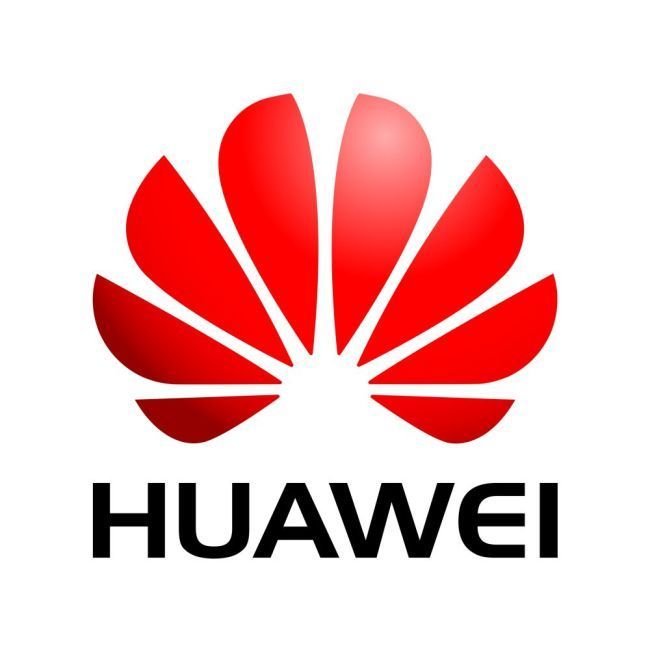[Exclusive] China’s Huawei to supply key network equipment for Seoul Metro
By Korea HeraldPublished : Aug. 3, 2017 - 16:20
China’s biggest network equipment manufacturer Huawei will supply core equipment for the telecommunications systems of Seoul’s major underground railways, sources said Thursday.
Hyundai Information Technology, a Korean provider of Huawei-made network equipment, won a bid to supply the telecommunications equipment with a bid price of 6.97 billion won ($6.19 million). The bid was opened by Seoul Metro through the Korea ON-Line E-Procurement System and closed on July 20.
Hyundai Information Technology, a Korean provider of Huawei-made network equipment, won a bid to supply the telecommunications equipment with a bid price of 6.97 billion won ($6.19 million). The bid was opened by Seoul Metro through the Korea ON-Line E-Procurement System and closed on July 20.

Korea’s major mobile carriers SK Telecom and LG Uplus also took part in the bid, but lost to Huawei’s strong price competitiveness, as they offered prices that were several hundred million won higher than the Huawei supplier.
The bid winner is expected to provide about 30 units of multiprotocol label switching backbone equipment for subway trains running on Subway Line Nos. 1 to 4 and 260 units of MPLS equipment for stations and serial communications devices.
The subway lines cover central parts of Seoul, including Gwanghwamun and Jongno, as well as Gangnam and Jamsil in the southern part of the city.
Equipment sets manufactured by Huawei will be used to control and transfer the data of traffic signals, power flows, train-to-train communications and operations of the whole telecommunications systems for the major subway routes.
According to the equipment industry, not only Seoul metro trains, but also other transportation and devices can be connected to the Huawei sets for communication at low speeds in order to be connected with the country’s nationwide LTE-Railroad network provided by KTX to provide passengers with faster wireless network service in the future.
“Hyundai Information Technology was selected because of its lowest bidding price,” said an official at Seoul Metro, who is in charge of the equipment improvement project.
The bid included two evaluation phases, the official said. All 11 bidders passed the first phase as the companies scored over 85 for their equipment quality and technologies. However, Hyundai with the Huawei products was finally chosen due to price competitiveness.
“Huawei’s strategy to expand into the Korean market is probably to highlight low prices,” the official added.

Upon the decision, the Korean industry voiced skepticism over the evaluation process and the required level of technologies and key functions.
“The bid price, the lowest-ever -- even lower than the production price -- raises concerns about excessive price competition and possible problems stemming from low quality,” an industry source said.
Headquartered in Shenzhen, Huawei was established in 1987 by Ren Zhengfei, who formerly served as a People’s Liberation Army officer. The company specializes in network equipment, providing core parts of communications infrastructure for 35 out of 50 major mobile carriers around the world.
Korea’s LG Uplus first introduced Huawei-made Long Term Evolution equipment in 2013, sparking controversy over information security risks.
Meanwhile, SK Telecom, the country’s largest telecom company in terms of revenue and subscribers, is currently conducting tests on Huawei products before an official purchase contract.
“The subway system is one of the crucial elements of national security, being the backbone of the national network,” said an industry source. “Exposing related data to the China-made equipment could pose threats to the future security of the country.”
Critics also highlighted Korean authorities’ “complacency” toward the expansion of Chinese businesses here, considering diplomatic relations between the two countries.
Since last year, bilateral ties have soured due to Seoul’s deployment of the US’ Terminal High Altitude Area Defense system on the Korean Peninsula. Tension is expected to continue as the current Moon Jae-in government is pushing for completion of the THAAD installation.
The Chinese government has allegedly indirectly pressed businesses to sever transactions with Korean firms, which resulted in falls in the country’s exports to China, including a service account deficit in June.
“Even with the unfavorable mood continuing, Huawei is hitting smaller Korean competitors in the telecommunications market with unreasonably low prices,” said an industry insider.
Seoul Metro and Hyundai Information Technology will officially sign the contract Monday. Establishment of the new systems is forecast to take about two years, the corporation said.
By Song Su-hyun (song@heraldcorp.com)
-
Articles by Korea Herald







![[KH Explains] Hyundai's full hybrid edge to pay off amid slow transition to pure EVs](http://res.heraldm.com/phpwas/restmb_idxmake.php?idx=644&simg=/content/image/2024/04/18/20240418050645_0.jpg&u=20240419100350)







![[From the Scene] Monks, Buddhists hail return of remains of Buddhas](http://res.heraldm.com/phpwas/restmb_idxmake.php?idx=652&simg=/content/image/2024/04/19/20240419050617_0.jpg&u=20240419175937)

![[KH Explains] Hyundai's full hybrid edge to pay off amid slow transition to pure EVs](http://res.heraldm.com/phpwas/restmb_idxmake.php?idx=652&simg=/content/image/2024/04/18/20240418050645_0.jpg&u=20240419100350)

![[Today’s K-pop] Illit drops debut single remix](http://res.heraldm.com/phpwas/restmb_idxmake.php?idx=642&simg=/content/image/2024/04/19/20240419050612_0.jpg&u=)